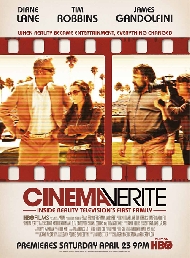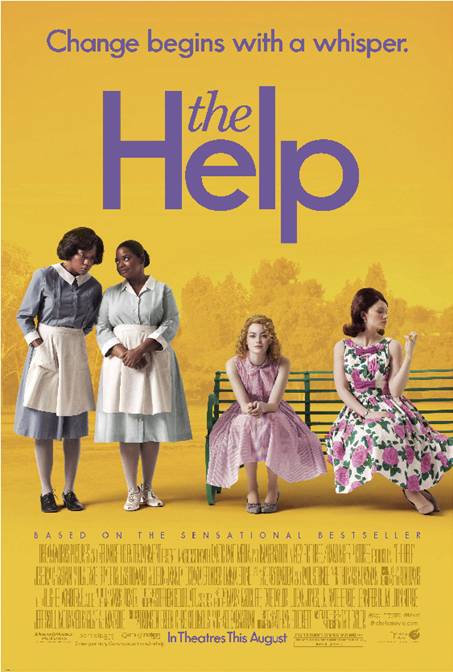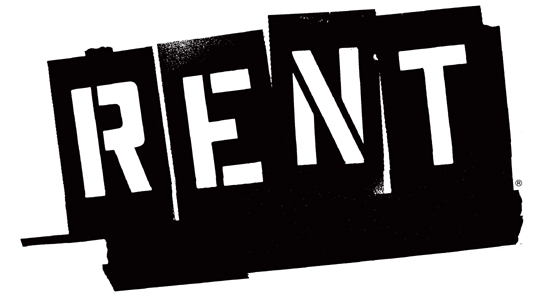 |
| Image from EntertainmentWallpaper.com |
"It's Friday night in my house." These are words spoken by Coach Riggins in season 5 as he prepares to give a rousing speech to his players telling them that in his house, on Friday night, no one messes with his football team. In this moment, his speech feels almost like a religious sermon. It struck a chord with me because it solidified the notion of football as religion in Dillon, Texas for the characters of Friday Night Lights. Friday night in my house is a religious night, a very different kind of religion, but it's what guides most of my behaviors and actions. For the folks of Friday Night Lights' Dillon Texas, football is religion and similarly guides much if not all of their lives.
After 5 years I finally got around to watching FNL. This on-again, off-again NBC/Direct TV series was the little show that could, while no network seemed to want it. When something is downtrodden enough and told they aren’t worth it, it would be easy to give up on yourself, but the show runners of FNL knew they had something golden on their hands and refused to give up on the folks of Dillon. Much in that regard, the show itself is an allegory for the characters which inhabit it.
FNL was not something that I was immediately drawn to. I had watched the pilot and the second episode back in 2006 and was not particularly captured by it. I also had a lot of TV on my schedule that year, so FNL did not make the cut for my viewing habits. A few weeks before it went off the air a couple of friends of mine implored me to watch it. One insisted that “If you have a soul, you will love this show.” Lest my friends think I am soulless, and since the first four seasons are on Netflix (and the rest on Hulu), I decided to watch. It took me a while to get into the story. I found I could not relate to so much of the narrative – this is similar to how I felt upon my initial viewing 5 years ago. But I decided to stick with it, and about two thirds of the way into season 1 I realized I was hooked and that the show, through its delicate artistry had created something completely relatable where I thought it would be impossible.
 |
| Image from Poptimal.com |
Presented to me was a world that is completely foreign to my life. Yes, I grew up playing high school sports and had a coach who believed in me and all other high school clichés, but "sports" was not life. My whole town did not gather together for our games, my coach was not known by name throughout the community. I did not need high school basketball (my sport of choice) to get me a college scholarship and offer an escape from a poor, dead end town. However, through the truthful and honest storytelling of the creators and actors, the greater themes and character studies of FNL became relatable and ultimately, universal.
As alluded to, the greatest strength of this show are its fleshed out characters. Helped by its stellar acting and excellent direction, the characters on the show begin as what could be seen as stock, and stereotypical players. You have the brooding hunk, the spunky cheerleader, the All-American Quarterback, the arrogant egomaniac, the quiet one, the sexy one, the nerd, and the list goes on. By about 5 episodes in you realize that these characters are anything but stock and will live up to surpass all of those stereotypes. For the most part, the show centers on the Dillon Panthers and Coach Eric Taylor (Kyle Chandler) and his family, but evolves to incorporate a whole town of characters and personalities which make the show so much more colorful than it could have been under less skilled leadership.
Coach Taylor is more than just a football coach to the boys on his team. For many of them, strong, positive father figures are a figment of their imaginations and Coach Taylor is a stand in for that man. He teaches them how to be “men” without worrying about whether that is an un-PC term. He teaches them about responsibility, family and what it means to be a part of something bigger then themselves. He is, however, not without his flaws. Like most of the characters on the show they are written with depth and multidimensional traits that makes them so relatable. Coach Taylor is probably one of the most consistently impulsive characters on the show, constantly reacting and overreacting to how those close to him are behaving. He finds himself apologizing for his impulsiveness, and while it at times frightens those around him, it also shows his passion is bubbling right at the surface.
Similarly, Tami Taylor (Connie Britton), Coach’s wife, is also a role model for the girls on the show. As guidance counselor turned principal turned guidance counselor she insists on academic excellence and has faith in those who don’t have faith from themselves. She deals with kids who never had faith in themselves to do much of anything, and pushes them towards the greatness they never knew they had. She is a mom and a friend when often the students have neither. She believes in them when no one else, not even themselves, do.
 |
| Image from watchalltvshows.com |
At the heart of this entire show is the relationship between Tami and Eric. They are the most functional television couple I've seen in recent times. (The only other couple who I can think to compare them to are Clay and Gemma on
Sons of Anarchy.) They fight, they disagree, they compromise, they respect. In sum, they love. In a landscape mostly devoid of successful, long term relationships, they stand out as a beacon of light, not only to their daughters but to the students and players.
This is all to say that the show is essentially about family – both the family you are born to or marry into and the one you create with those you surround yourself with. As much as some of them resisted, the boys on the team became a family. They learn to look out for one another, trust each other and ultimately love each other. Eric and Tami provide a model to them for how to do that in an actual family, and the boys, looking for a support system create their own surrogate family through the team.
In season 4 when Coach Taylor switches teams from the Dillon Panthers to the East Dillon Lions, he has to start the whole process of creating a family all over again. By comparison, next to his rag-tag new team, the Panthers suddenly look like a professional, high-falutin’ group of success stories and the audience learns from that not to take things at face value. However, by now we are experienced viewers of the show. We know the real Dillon Panthers and know not to judge this book by its cover. They might look tough on the outside but we’ve had a closer look in and know the truth to those boys. In East Dillon, Coach Taylor has a whole new crop of students, and to his surprise, these are even worse off than the kids he had on the Panthers. But, he doesn’t veer off the course. He knows his role in these kids’ lives and treats them with the same respect and dignity that he always has led with. It takes them a season, but eventually these boys learn that Coach and Tami Taylor will be there to support them through it all.
An interesting theme that arises is despite the football as life or football as religion motif. Football is central to their lives in Dillon, yet it also was a way out for so many of its inhabitants. For so many, Dillon was acceptable until you could somehow escape it, and many sought to do that through football. Dillon is a way of life, but it was also supremely suffocating and stifling as many saw it as a dead end place. Therefore, to make a success out of oneself they needed out of their small town. It’s no surprise that every single character who had goals for a better life left Dillon. The only character to stay and to be happy staying was Tim Riggins (Taylor Kitsch), the brooding, quite, angry fullback who could never seem to catch a break. He tried to leave, even got himself a football scholarship to college, but he couldn’t hack it. There’s a big world out there and it’s daunting to head out there without feeling like you have a support system. That’s the tragedy of Tim Riggins. He was a one man island, not trusting anyone else but himself to care for him. So he stays in Dillon and tries to make his life better with the limited tools he has. But, even in his own way, he is determined to succeed. And by the end of the series, he’s already a step ahead of where his deadbeat parents left him, so there is hope.
That isn’t to say that Dillon-ites don’t appreciate their upbringings. There’s a touching moment in season 4 when Julie Taylor (Aimee Teegarden) is interviewing at a college and finally admits to not being ashamed of where she comes from. In that moment she realizes both her need to leave and her appreciation for where she came. It’s a lesson to us all, no matter where we hail from, to both be able to respect your past despite what you might see as failings or shortcomings, as the place that shaped you to who you are today and what helped you strive to reach your potential. It also teaches us the importance of taking risks, because if we are simply complacent in our original surroundings and happy with what we have we might not have the urge to reach for greater, something Julie, and we have to know we can accomplish.
On more than one occasion I was brought to tears by this show, and they came at times when I least expected it and sometimes in situations I thought was so foreign to me. By all accounts Tyra (Adrianne Palicki) and I could not be more different. We have pretty much nothing in common. However, in season 3 when she was crying to her mom because she was scared that she wants better for herself and doesn’t know if she’ll be able to attain it, I was right there in that moment with her. I know exactly how she feels at that moment, as though the weight of the world is on your shoulders and you’ve tried your absolute best to get something you want and you no longer have any control over the outcome. If you’ve applied to a job, or to a school, or even gone on a first date and are waiting for the guy to call you, you know how Tyra felt in that moment. And when her mother comforts her and encourages her that she will attain all that she has worked for, I knew that was a conversation I have had time and again with my mom. That’s how the show is so relatable: it takes individual characters with detailed experiences and needs and makes universality out of those specifics.
And now the show has ended. I'm sad to say goodbye to those characters whom I feel I have gotten to know over the past few months. I'm sad not to know see how Tami and Eric fare in Philadelphia, watch Julie and Matt's relationship continue to develop, see how Tim's house comes along, whether Jess one day does become a football coach, how Luke and Becky handle him being in the army, and so on. The little show that could, just could not chug over another mountainous season without the support it deserved. It’s unfortunate that NBC didn’t give it the support it deserved because it didn’t get the initial rating numbers that the network had wanted. It’s unfortunate that our media landscape today seems to only pay attention to big, flashy shows with that ultimately have little to no substance. It's unfortunate to think networks would rather pour their money and timeslots into shows that promote bad behavior from talentless hacks on reality shows. The airwaves needs more good, honest. well written characters brought to life by talented actors. Now with FNL saying its last goodbye, we just lost a few more.








